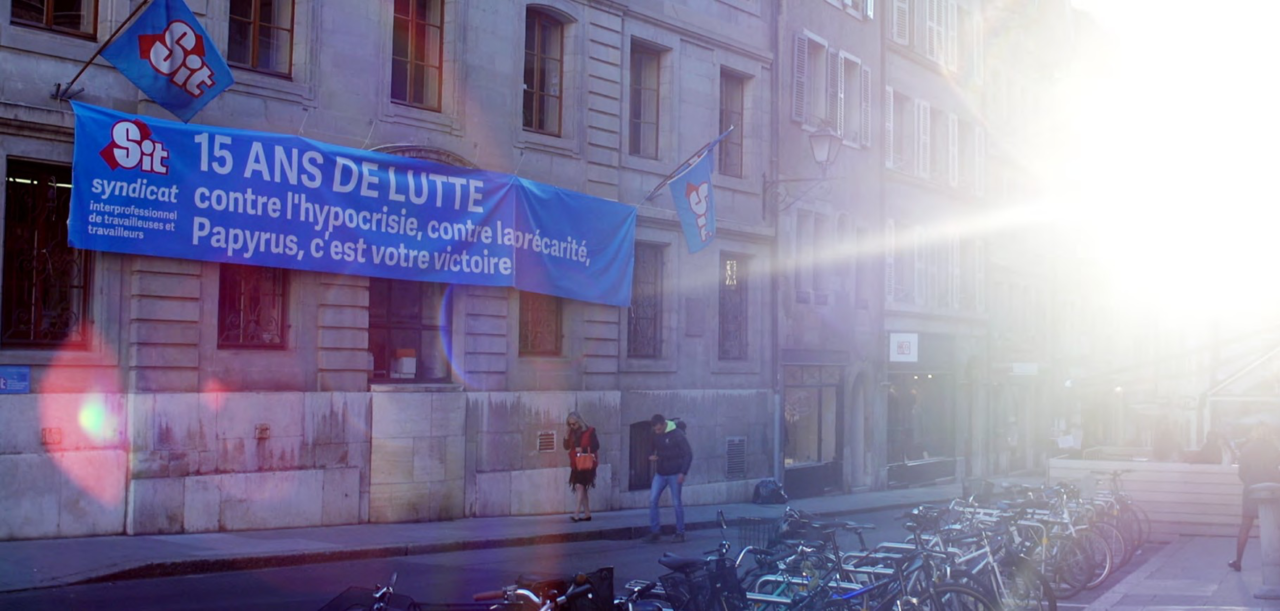Migration and exile through impactful films
Over the years, the selection of films in the educational programme has sought to reflect the diversity of migrant experiences and journeys, in Europe and elsewhere.
In recent years, forced migration has become a central and controversial issue in European societies. This theme is of particular importance in academic contexts, inviting reflection upon the human condition, cultural diversity and issues of social justice.
The challenges faced by people who have migrated to Europe in search of a better future have been addressed by a variety of films in previous editions of the FIFDH’s educational programme.
You can now find exciting films exploring these subjects on our new Schools platform:

Aventure, retour au pays natal by Benjamin Hoffman and Aurylia Rotolo (2016): Tired of failed crossings, risk-taking and misery, the protagonists have taken a rare decision among illegal migrants: to return home of their own free will, and penniless; the return of shame.

Les réfugiés de Saint-Jouin by Ariane Doublet (2017): Between solidarity and hostility, this film illustrates the processes, steps and exchanges surrounding the reception of a Syrian family in a village in Normandy.

Un jour ça ira by Stanislas Zambeaux and Édouard Zambeaux (2018): This film depicts the complexity of developing as adolescents living in a housing centre for migrants in Paris.

Opération Papyrus by Béatrice Guelpa and Juan José Lozano (2019): An unprecedented human adventure, that of the pilot project to regularise the situation of tens of thousands of undocumented migrants in Geneva.

Numéro 387 disparu en Méditerranée by Madeleine Leroyer (2019): In 2015, more than five thousand migrants disappeared during their crossing of the Mediterranean. A team of researchers sets off in search of their identities, at the heart of the humanitarian disaster that opened our century.

Enfant de l’exilby Claire Billet and Olivier Jobard (2020): Ghorban left home alone at the age of 12, becoming an asylum seeker in France. The film follows his passage from childhood to adulthood and his return to Afghanistan over eight years, revealing a cultural gap with his family.

Elles, les (in)visibles by Maevia Griffiths (2021): The life stories of four undocumented women domestic workers in Geneva, between clandestinity and marginalisation.

Shadow Game by Eefje Blankevoort and Els van Driel (2021): The dangerous journey of teenagers through the fortress of Europe, filmed experimentally and from their own point of view.

Lettres Ouvertes by Katharine Dominice (2023): In a series of open letters, former migrant workers in Geneva and their children recount the impact the seasonal permit system has had on their lives.
The film will only be available on our platform in September 2024. In the meantime, FIFDH may offer screenings at schools upon request.
We invite you to explore these films on the Schools platform, integrate them into your curricula and use them as a starting point for constructive discussions in the classroom. These films offer a valuable opportunity to broaden your students’ perspective on the world, foster empathy and provoke meaningful reflection.